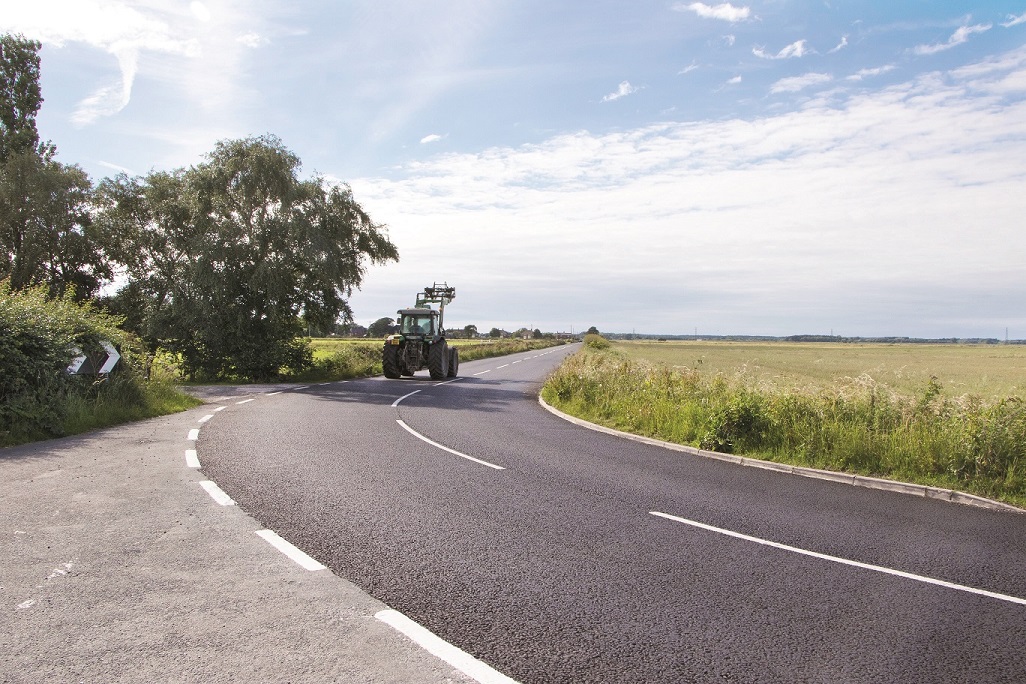
VIALOW reduced carbon asphalts come with the option to offset residual CO2 to make them CarbonNeutral products, according to The CarbonNeutral Protocol.
CEMEX announced its Climate Action strategy in February 2020, and in its European operations, reduced its CO2 emissions by close to 35% as of 31 December 2020, ten years ahead of the target date. CEMEX also declared a 55% CO2 reduction target for its European Operations, aligning with the European Commission goal for all member states.
VIALOW asphalts use a specially formulated bitumen additive to enable manufacture at up to 40°C lower than standard asphalt mixes with no compromise in performance. The added benefit of VIALOW is that it achieves up to a 20% reduction in embodied carbon emissions.
The range includes the VIALOW Zero option, which is a CarbonNeutral product, and complements the CEMEX VERTUA range of low carbon building solutions, further enhancing CEMEX's Future In Action strategy – committed to Net Zero CO2.
As technology and the industry shift toward low carbon asphalt, the best interim way to sequester the rest of the CO2 footprint and make it a carbon-neutral product is through carbon offsetting. To do this, CEMEX is working with Natural Capital Partners, an award-winning expert on carbon neutrality and climate finance, that is harnessing the power of business to create a more sustainable world.
VIALOW offers customers a host of other benefits alongside its sustainability credentials. The lower temperature of the manufacturing process can also help to improve the long-term performance and durability of the asphalt, as high temperature in conventional mixes leads to more oxidative hardening of bitumen than is seen in lower temperature variants.
Reduced temperature asphalt also offers safety and environmental benefits, including a reduced risk of burns and lower odours, providing a safer and more pleasant working environment for both workers and neighbours to the construction site. The reduced mixing and paving temperatures of low-temperature asphalt can reduce fume generation by around 50% for approximately 10°C reductions in temperature.
Furthermore, by being a low-temperature asphalt, VIALOW allows the re-opening of a job site more quickly after completion of road works. Asphalt reaches appropriate trafficking temperatures faster than the conventional hot mix asphalt. Alongside minimising disruption and enabling construction programmes to remain on time, this offers further benefits to the environment. Statistics show that stationary traffic caused by road closures creates four times as many pollutants when compared to moving vehicles.
The launch of the VIALOW range follows a report from the All-Party Parliamentary Group (APPG) on Highways which identified warm mix asphalts (WMA) as an underutilised opportunity to reduce the CO2 emissions associated with asphalt production for road infrastructure. At the time of publishing, the report found that WMAs represent less than 4% of UK asphalt production. However, if all asphalt production in Great Britain had been switched to WMA, the report states it would have saved at least 61,000 tonnes of CO2 – the equivalent of cutting almost 300 million miles of car journeys.
Carl Platt, CEMEX director of Asphalt, Paving, and Building Products for Europe, said: "Asphalt is an essential part of our country's infrastructure; roads provide access to employment, social, health and education services, provide access to more areas and stimulate economic and social development. However, we recognise that future construction needs to be balanced with the effect it is having on the environment."
"CEMEX is totally committed to improving the sustainability of its operations and supporting its customers to do the same. With the launch of VIALOW, CEMEX aims to make it simple for customers to choose more sustainable and environmentally-friendly asphalts that have a lower embodied carbon, offset residual emissions and help drive vital change.
"Moreover, this industry-leading range of low-temperature asphalt is designed to produce faster construction times, minimise disruption and reduce road maintenance costs alongside the added benefit of a carbon footprint reduction."
CEMEX Urbanisation Solutions is constantly innovating to provide customers with a broad range of sustainable solutions for the challenges of urbanisation, with a central focus at all times on the company's Future In Action strategy - committed to Net Zero CO2.
VIALOW is available all year round in all Asphalt Concrete Base, Binder and Surface courses, and Hot Rolled Asphalt (only where pre-coated chippings are not required), Stone Mastic Asphalt and the full Proprietary range.
After engineering carbon reductions into the asphalt mix design, CEMEX calculates the embodied carbon generated from extraction, transportation and processing of raw materials, product manufacturing and distribution. The residual carbon is then offset, making the asphalt CarbonNeutral from cradle-to-customer.
Carbon offsetting is the removal or reduction of emissions of carbon dioxide and other greenhouse gases from the atmosphere to compensate for emissions made elsewhere.
CEMEX will facilitate this by financing projects which physically remove CO2 from the atmosphere, such as planting trees. A CarbonNeutral certificate is then issued to the client.
CEMEX calculates the embodied carbon (as CO2e) in the VIALOW range using a Carbon Footprint Calculator following relevant standards and guidelines.













